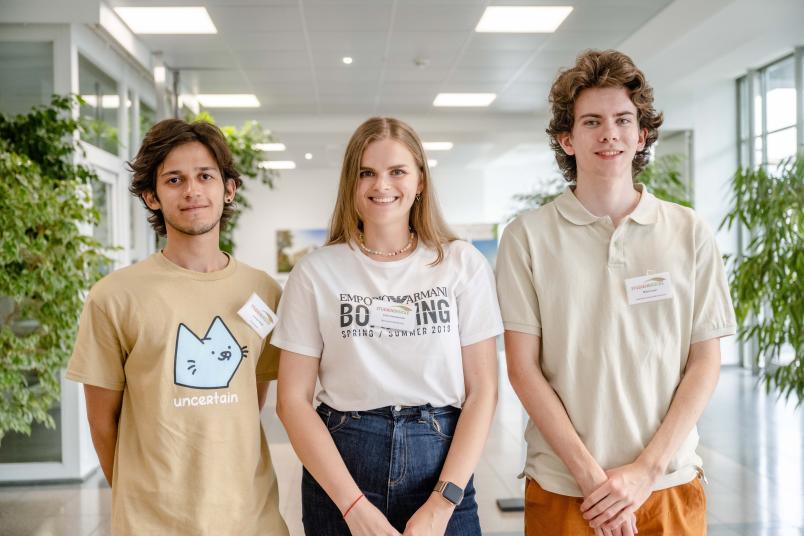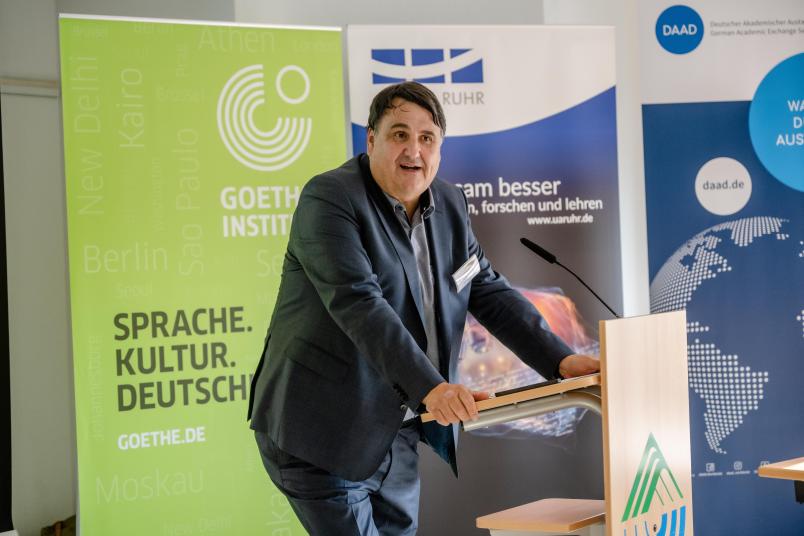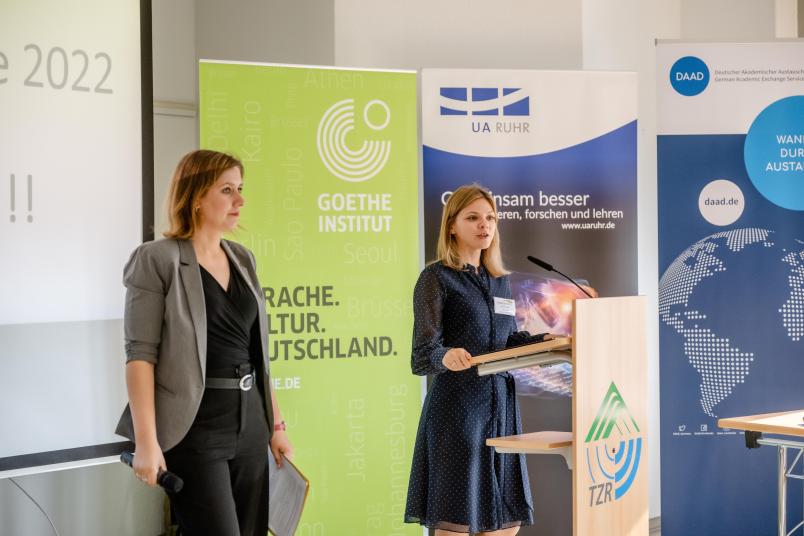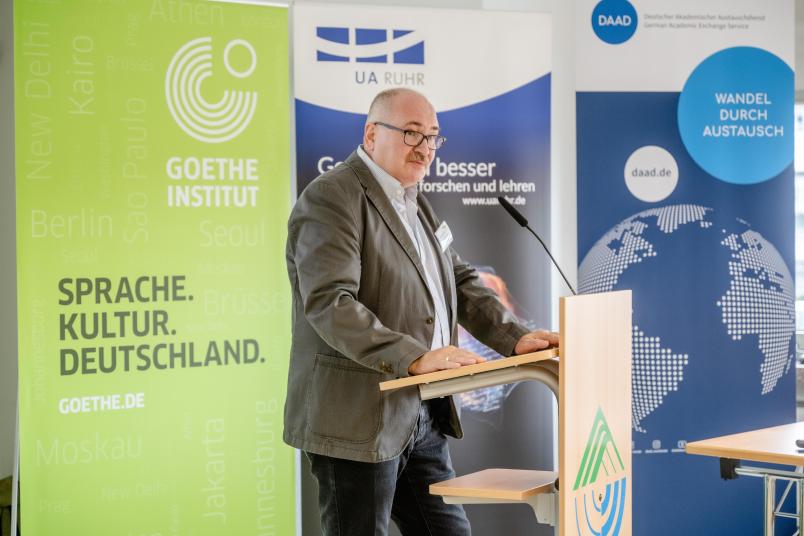First Alumni Meeting
Crossing of Study Bridge accomplished
The Study Bridge programme has been building a “study bridge” to Eastern Europe for eight years. RUB facilitated the first reunion of Study Bridge alumni in difficult times.
Approx. 80 alumni of the international Study Bridge programme met at RUB on 7 September 2022 for a networking opportunity and reunion. Through the programme, highly dedicated and qualified young people from Eastern Europe, namely Russia, Ukraine and Belarus, and other regions of the world study at German partner universities. Demand is high and the programme continues unabated.

Today, it’s obvious that it was the right decision to let the programme continue.
Martin Paul
Since the start of Russia’s offensive war on Ukraine in February 2022, active relations with Russian state institutions have been put on hold. However, this doesn’t apply to study preparation programmes that provide a path to study at German universities. One of the most successful programmes of this kind is Study Bridge. “Today, it’s obvious that it was the right decision to let the programme continue,” says a pleased Professor Martin Paul, RUB Rector. “This is reflected in the enthusiastic response and the demand from all over Eastern Europe. Study Bridge stands for community spirit, for support and solidarity. It is especially the students from Russia and Ukraine who come to us who stick together in these difficult times and interact with the students from other Study Bridge target countries.”
Study Bridge is a programme specifically designed to promote individual mobility. Funded by the German Academic Exchange Service (DAAD) and the Goethe-Institut, it takes international students with excellent German language skills to partner universities. The students finance their stay out of their own pocket – without the involvement of any institutions from Russia or other Eastern European countries. So far, a total of 51 Ukrainian and 121 Russian students as well as 32 students from other countries have used this programme to train in the so-called STEM disciplines. At RUB, there have been a total of 204 Study Bridge students since the programme was launched.
RUB was pilot university
As one of the founding members of Study Bridge in 2014/2015, RUB was also the pilot university at the time. The university developed and established the programme together with the Goethe-Institut in Eastern Europe/Central Asia. Following popular demand, the programme was taken over by the Goethe-Institut’s head office in Munich in 2017 and expanded to many other regions around the world. After the Liaison Office Eastern Europe/Central Asia of the University Alliance Ruhr (UA Ruhr) took over the coordination, it was also extended to the two neighbouring universities of UA Ruhr, TU Dortmund University and the University of Duisburg-Essen.



